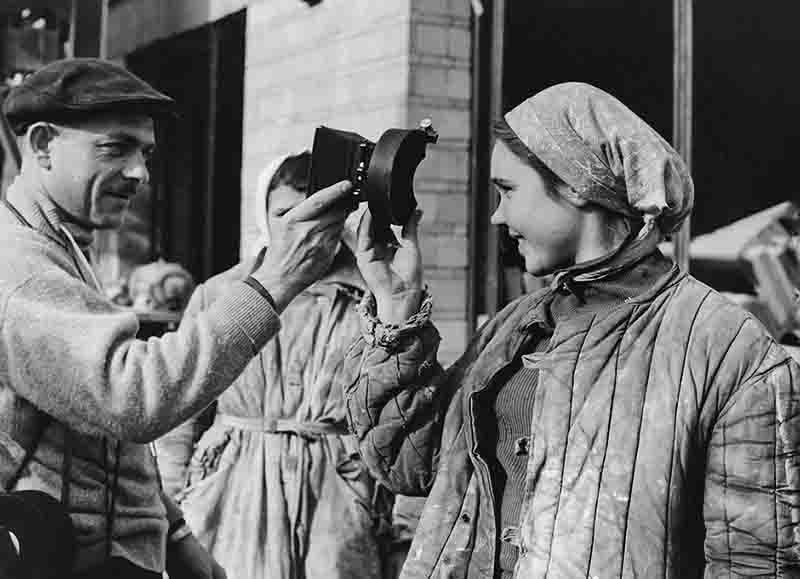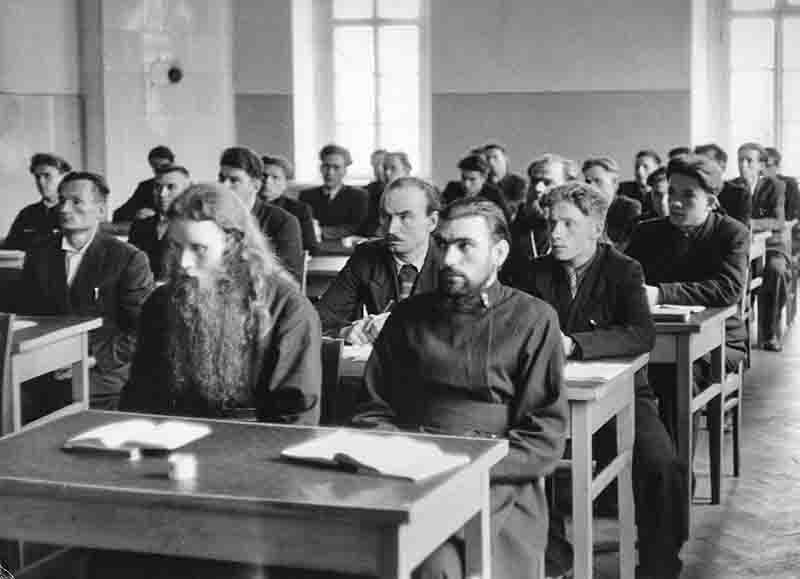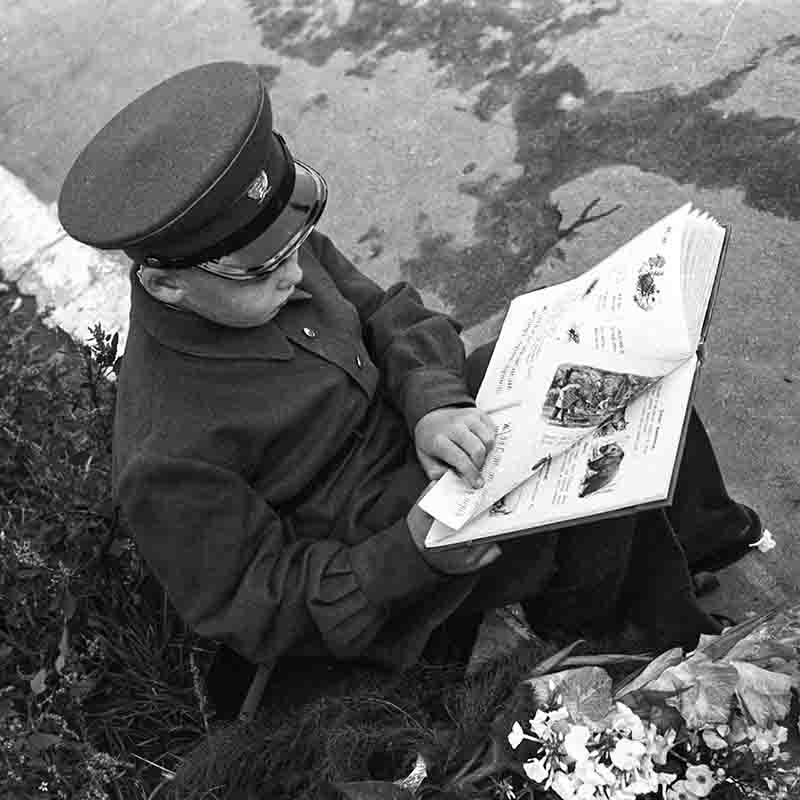From a Western perspective, Russia has long been a fascinating and complex enigma. The vast expanse of its geography, rich cultural heritage, and tumultuous history have captivated the imagination of Westerners for centuries.
Dialogue between Russia and the West

During the Cold War, Russia was often viewed through the lens of ideological rivalry, casting a shadow of suspicion and mystery.
Russian identity through Western eyes
The Soviet era had a lasting impact on the West's perception of Russia.
Contributing to the sense of apprehension and intrigue were the stark contrasts in political ideologies and the constant geopolitical tensions.
The mystique of the "Iron Curtain" and the seemingly impenetrable nature of Soviet society created an air of mysticism in Western perceptions of Russia.
Cultural exchanges, though limited during the Cold War, provided glimpses into the artistic and literary achievements of Russian society.
Bock-Schroeder's Stunning Moscow Photos
Western perceptions of Russia are deeply rooted in historical contexts, ranging from the Tsarist era to the Soviet period and beyond.
The works of Russian artists, authors, composers and filmmakers crossed political divides and offered the West a nuanced understanding of the depth and sophistication of Russian culture.
A new chapter in the Western perception of Russia began with the collapse of the Soviet Union in 1991.
The transition to a market economy, coupled with political transformations, presented a dynamic yet challenging landscape for both Russians and Western observers.
One of the key characteristics of the developing relationship was a mixture of curiosity, skepticism and a genuine desire for mutual understanding.
Russia through Western perceptions
Contemporary cultural exchanges between Russia and the West continue to be shaped by a combination of historical legacy, geopolitical considerations, and intellectual interaction.
The intricate dance between cooperation and tension in diplomatic relations, coupled with Russia's assertive role in global affairs, keeps the nation in the forefront of Western consciousness.
"Russia through the eyes of a Westerner" embodies a multifaceted narrative—a tale of historical intrigue, cultural richness, and a constant dialogue between two worlds with distinct perspectives and aspirations.
Due to the great interest and appreciation that many people in the West have for Russia's diverse cultural traditions, there is a great affinity for the richness, uniqueness and historical significance of Russian culture.

During the Cold War, the ideological conflict between the United States and the Soviet Union fueled Russophobia in the West. The fear of communism and the perception of Russia as a global adversary contributed to negative stereotypes and biased portrayals.
Eyes Wide Open: Western Perspectives on Russia’s Storied Past
The history of "Russia through the Eyes of a Westerner" is a fascinating tale of evolving perceptions, shaped by a dynamic interplay of cultural, historical, and geopolitical factors.
Dating back to the Enlightenment era in the 18th century, Western fascination with Russian culture began to burgeon.
The mysterious allure of a vast empire, rich in traditions and distinct from the Western narrative, captivated the imaginations of intellectuals and artists.
Cultural diplomacy has ever since played a pivotal role in shaping perceptions of Russia.
Stereotypes and Realities
Stereotypes have often colored Western portrayals of Russia, perpetuating simplified and one-dimensional views.
Analyzing these stereotypes is crucial for dismantling preconceived notions and fostering a more accurate understanding of Russian society.
Contrasting these stereotypes with lived experiences allows for a nuanced appreciation of the complexities that define Russian identity beyond Western misconceptions.
Examining contemporary Russia through Western eyes involves understanding the impact of global events on its image.
It is necessary to develop an open-minded and informed approach to explaining and communicating Russia's rich and evolving identity to the Western audience.
Westerners scrambling to decode Russia
Exploring the ways in which Westerners perceive and interpret the cultural, historical and geopolitical aspects of Russia is a nuanced journey shaped by a multitude of influences.
This multi-layered structure consists of an interplay of historical heritage, geopolitical narratives, cultural exchange and individual experiences.
In the following, we address the key elements that contribute to the Western view of Russia:
-
Historical Context: Western perceptions of Russia are deeply rooted in historical contexts, ranging from the Tsarist era to the Soviet period and beyond. The impact of significant events such as the Russian Revolution, World War II, and the Cold War has left an enduring imprint on how Westerners view Russia's historical trajectory.
-
Geopolitical Narratives: The geopolitical landscape plays a pivotal role in shaping Western perspectives on Russia. Cold War rivalries, nuclear arms race, and contemporary geopolitical tensions influence how individuals from Western cultures perceive Russia's role on the global stage.
-
Media Representation: Media acts as a powerful lens through which Westerners form perceptions of Russia. News coverage, documentaries, and popular culture contribute to shaping the narrative, often emphasizing certain aspects of Russian culture, politics, or international relations.
-
Cultural Exchanges: Cultural exchanges provide Westerners with a window into Russia's rich cultural heritage. Appreciation for Russian literature, music, art, and cuisine fosters a deeper understanding, while the portrayal of Russian culture in Western media influences preconceived notions.
-
Language Barriers: Language serves as a bridge but can also pose a barrier. Westerners relying on translations may miss certain cultural nuances, impacting their ability to fully comprehend the intricacies of Russian literature, history, and societal values.
-
Political Ideologies: Ideological differences, particularly during the Cold War, have shaped Western perceptions of Russia. The contrast between Western democracies and the Soviet socialist system has contributed to a dichotomy that influences how individuals interpret Russia's political landscape.
-
Travel and Personal Experiences: Direct experiences through travel or personal interactions with Russians play a significant role in shaping perceptions. Engaging with Russian people, witnessing daily life, and experiencing the cultural richness firsthand can challenge or reinforce pre-existing notions.
-
Economic Considerations: Economic factors, including Russia's transition to a market economy, impact how Westerners view the nation. Economic stability, business opportunities, and trade relations contribute to a multifaceted understanding of Russia's place in the global economic landscape.
-
Technological Connectivity: The digital age has facilitated global connectivity, enabling Westerners to access information and diverse perspectives on Russia. Social media, online forums, and digital platforms contribute to a more dynamic and varied exchange of ideas.
-
Cultural Stereotypes: Stereotypes, whether perpetuated through media or historical narratives, can significantly influence perceptions. Overcoming stereotypes requires a nuanced approach to understanding the complexities of Russian culture.
In essence, the exploration of how Western individuals perceive Russia is a dynamic and evolving process. It involves an interplay of historical legacies, geopolitical dynamics, cultural exchanges, and personal experiences that collectively contribute to shaping a multifaceted and nuanced Western perspective on Russia.
Beyond borders: Russia's rich history invites the Western imagination

Russia's historical narrative, marked by tsars, revolutions, and the Soviet era, contributes to a sense of intrigue. The vastness of its history, filled with triumphs and tragedies, adds layers of complexity that captivate Westerners.
For Westerners, Russia has a mystique that goes beyond mere curiosity; it is a mixture of awe, wonder and a sense of the unknown.
The Russian riddle is deeply rooted in the vastness of Russia's landscapes, the enigmatic historical narrative, and the unique cultural identity that sets the nation apart.
For Westerners, Russia often seems like an intriguing puzzle, with each piece revealing a layer of complexity that adds to the overall fascination.
Understanding cultural complexities requires multiple perspectives. Exploring a variety of sources and engaging in respectful dialogue helps to create a more nuanced picture.
Russia through the lens of a Westerner: FAQ
Timeless Rebel
A Click Away from Analog Magic
